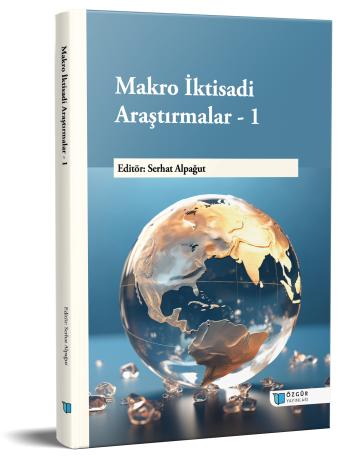
Avrupa Birliği Ülkelerinde Mutluluğun Belirleyicileri: Panel Veri Tahmini
Şu kitabın bölümü:
Alpağut,
S.
(ed.)
2025.
Makro İktisadi Araştırmalar - 1.
Özet
Kişi başına düşen gayri safi yurt içi hasıla (GSYH), bireylerin yaşam standartlarını ölçmek için yaygın ve temel bir biçimde başvurulan niceliksel bir gösterge olmakla birlikte, modern refah literatürü, politika tasarımının yalnızca bu tür ekonomik göstergelerle sınırlı kalmaması gerektiğini vurgulamaktadır. Toplumsal refahın çok boyutlu ve dinamik doğası, GSYH ve benzeri makroekonomik değişkenlerin ötesine geçilerek mutluluk veya öznel refah gibi niteliksel ölçütlerin de değerlendirmeye katılmasını zorunlu ve kaçınılmaz kılmaktadır. Bu çalışmada, 2010‑2023 dönemine ait 27 Avrupa Birliği ülkesinin panel verileri üzerinde Driscoll-Kraay (1998) Standart Hata tahmincisi tekniği uygulanarak mutluluk düzeyinin belirleyicileri ampirik olarak incelenmiştir. Ayrıca bu tekniğin yanı sıra, elde edilen bulguların güvenilirliğini ve tutarlılığını sağlamak üzere FGLS (Uygulanabilir Genelleştirilmiş En Küçük Kareler Yöntemi) ve PCSE (Panel Düzeltilmiş Standart Hata Tahmini) testleri de uygulanmıştır. Bağımlı değişken olarak mutluluk düzeyi; bağımsız değişkenler olarak ise sefalet endeksi, özgürlük endeksi, ticari açıklık oranı ve kişi başına düşen GSYH ele alınmıştır. Elde edilen bulgular, sefalet endeksi ile ticari açıklık oranının mutluluk düzeyi üzerinde negatif ve istatistiksel olarak anlamlı; özgürlük endeksi ile kişi başına düşen GSYH’nin ise pozitif ve istatistiksel olarak anlamlı etkilere sahip olduğunu göstermektedir. Sonuçlar, mutluluğun belirleyicilerine ilişkin çok boyutlu bir çerçeve sunmakta ve yalnızca ekonomik değişkenlere odaklanmanın yetersiz kaldığını, kurumsal yapının ve küresel entegrasyonun da politika tasarımında dikkate alınması gerektiğini ortaya koymaktadır.

